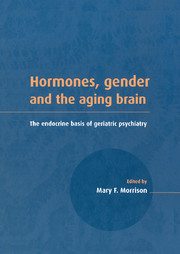Preface
Published online by Cambridge University Press: 18 September 2009
Summary
Two of the great mysteries of life for those beyond the age of 30 are: Why do we age? What can we do about it? The idea of ‘successful aging’ has captured the interest of researchers in the biological and social sciences as well as the interest of the public. While our hopes for our retirement years focus on unencumbered time pursuing interests and adventures with leisure, we fear that changes in our physical and emotional/cognitive integrity, brought on by the aging process, may get in the way of realizing those hopes. The process of aging holds many risks, including medical illness, pain, and living with disability. Our fears may focus on the loss of self and others to new onset psychiatric conditions such as depression, anxiety, psychosis, and cognitive disorders. The high prevalence of medical comorbidity in the aged and the biology of aging create especially challenging issues in geriatric mental health.
This book begins to clarify the growing body of knowledge on the hormonal causes and treatment of mental disorders among the elderly. The interplay between endocrinology and psychiatry has a long and fascinating history, but only recently has research into this area included the elderly.
Here, perspectives on the role of hormones in mental function in aging are presented in four sections: basic science overview; endocrine aspects of mental disorders in aging; psychoneuroimmunology; and pharmacology.
- Type
- Chapter
- Information
- Hormones, Gender and the Aging BrainThe Endocrine Basis of Geriatric Psychiatry, pp. xiii - xviPublisher: Cambridge University PressPrint publication year: 2000

